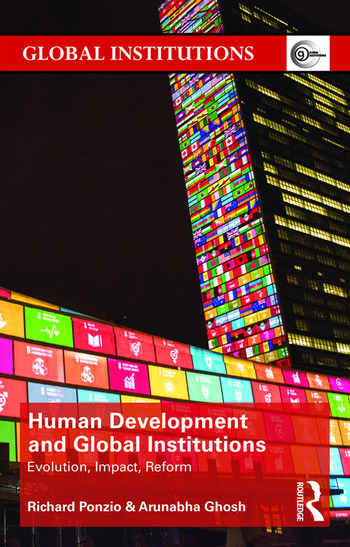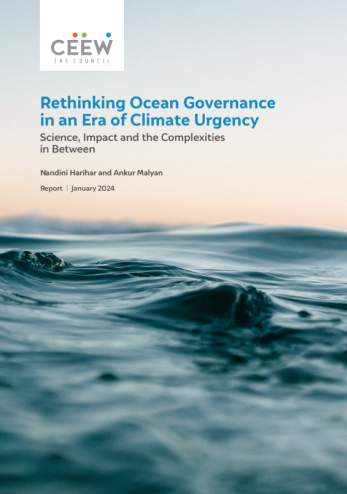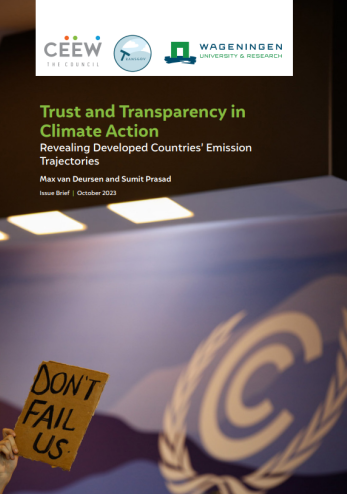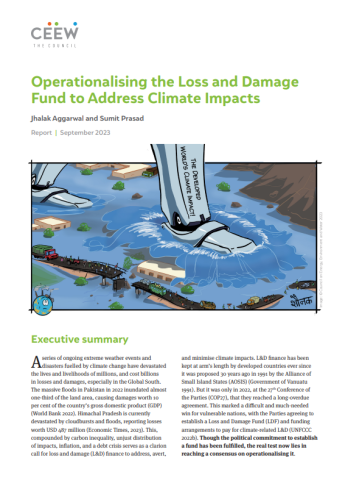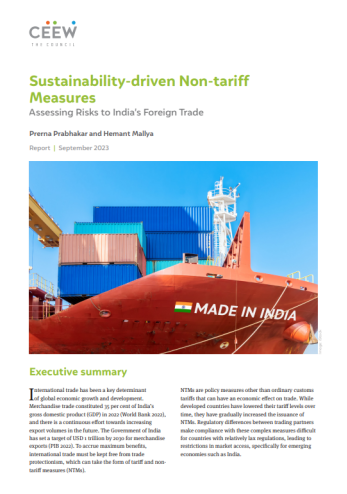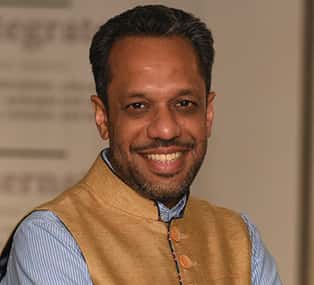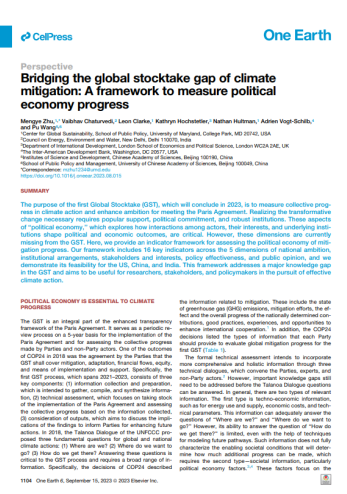Paper
Human Development and Global Institutions
Evolution, Impact, Reform
Richard Ponzio and Arunabha Ghosh
February 2016 | International Cooperation
Suggested citation: Ponzio, Richard, and Arunabha Ghosh. 2016 Human development and global institutions: evolution, impact, reform. Routledge.
Overview
This book provides an introduction to the foundational ideas associated with human development. It specifically examines the concept’s influence in redefining human progress over the past two-and-a-half decades since the Cold War in institutions of global governance. It also details how human development faces new risks and threats, caused by political, economic, social, and environmental forces. These risks are highlighted in a series of case studies on trade, water, energy, the environment, democracy, human rights, and peacebuilding. Further, the book makes the case for why human development remains relevant in an increasingly globalised world, asking whether global institutions will be able to sustain political and moral support from their member states and powerful non-state actors.
Key Highlights
- From the early 1990s, human development offered global institutions—during a period of renewal and great promise—a comprehensive development agenda to help policy-makers improve the quality of their citizen’s lives, thereby enhancing their own legitimacy and respect as leaders.
- The earliest Human Development Reports (HDRs) exerted a profound influence on developing thinking and altered policy outcomes, during the past two and a half decades, in the UN and other international policy forums.
- The human development discourse has significantly influenced the field-based programming of international agencies from across the UN system, including the international financial institutions, as well as beyond it, such as at the World Trade Organization, OECD-DAC, and G8/G20.
- The first decade of HDRs made significant strides in redirecting the attention of both states and markets towards people as the chief ends, as well as means, of development.
- From the outset of the global HDR series in 1990, the Human Development Index (HDI) played an influential role in shaping how international policy-makers, practitioners, and scholars understood and approached international development.
- Refinements in the HDI and Multidimensional Poverty Index (MPI), and creation of a new Gender Inequality Index (GII), have addressed key technical challenges and kept the comprehensive human development measurement tools relevant in gauging important international development trends in the early 21st century.
- They have contributed to both defining and assessing progress on the Millenieum Development Goals (MDGs), and with suggested further modifications and improvements, the human development measurement toolbox is poised to assist the tracking of the post-2015 Sustainable development Gials (SDGs) too.
- In international trade, a focus on expanding people’s opportunities and choices would mean that the rules would have to be framed in a way that increased access to medicines, or provided rewards for traditional knowledge, or increased capacity for the poorest countries to engage more thoroughly with the global trading system.
- International trade is both an enabler of human development goals and could undermine human development progress if the rules are skewed or there are sudden shocks to the trade system. Environmental externalities gravely impact poor countries and the poorest communities. Unless they are the focus of international and national policy, human development progress will be slow on all counts.
- As human development has become more explicit about environmental sustainability issues, debates on sustainability have gone beyond mere rhetoric to acknowledge the importance of access, the vulnerability of the poor, increasing resilience, and creating appropriate conditions for developing technologies, and trading and transferring them.
- Combining analytical tools from political scientists, lawyers, and philosophers, in addition to the disciplines of development economics, sociology, and women’s studies, thinking on democracy, human rights, and peacebuilding enriched the concept of human development significantly.
- By giving greater parity to notions of social and economic democracy, the social and economic rights of the individual, and the socio-economic dimensions of peacebuilding, human development has greatly enhanced our understanding and contributed to better applications of these fundamental pillars of both global and national societies today.
Key Recommendations
- Modify WTO rules to enable it to play a constructive role in promoting energy access and preventing climate change. To minimise the potential for further disputes in this area, develop mutually agreed principles to harmonise international trade and renewable energy policies.
- Use a human development approach framework to ensure the availability of adequate quantities of critical resources, at prices which are affordable and predictable, with minimum risk of supply disruptions, to ensure sustainability for the environment and future generations.
- Structure international climate negotiations and, more importantly, climate action as per the framework of access, efficiency, and externalities to yield a governance process different from that which has failed over two decades.
- Develop new or, at the very least, significantly alter existing human development composite indicators to understand what the post-2015 development agenda would need.
- Enhance global governance tools for democratic governance promotion at the national and sub-national levels.
- Place economic, social, and cultural rights on par with political and civil rights internationally.
- To continue to expand the global reach of peacebuiding, use it as an organising framework, strengthen the global peacebuilding and and conflict management architecture, and reform the UN Security Council to reflect contributions to human security.
Defined as “a process of enlarging people’s choices” to improve the human condition, human development represents both an intellectual and policy breakthrough in global governance, given its success in reminding world leaders, scholars, and civil society at large of the ultimate purpose of development: to treat all people—present and future generations—as ends.




